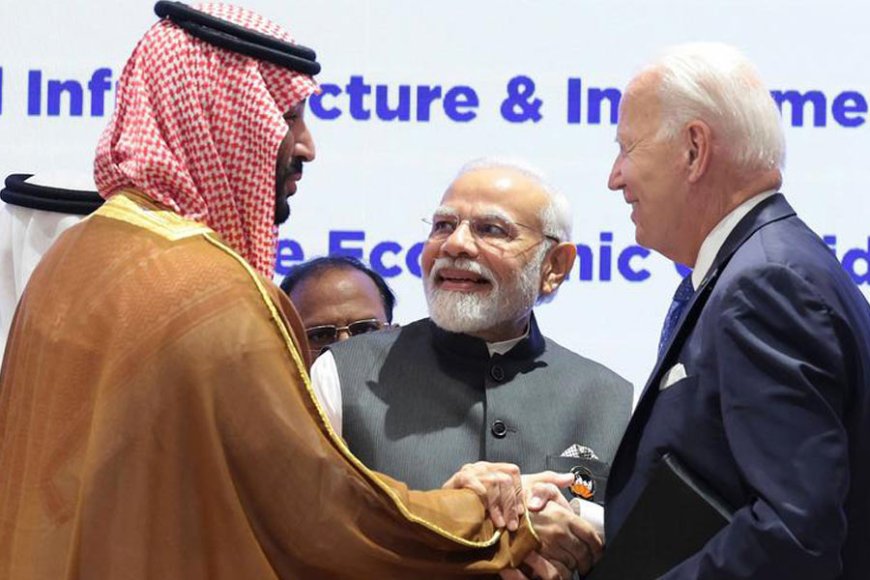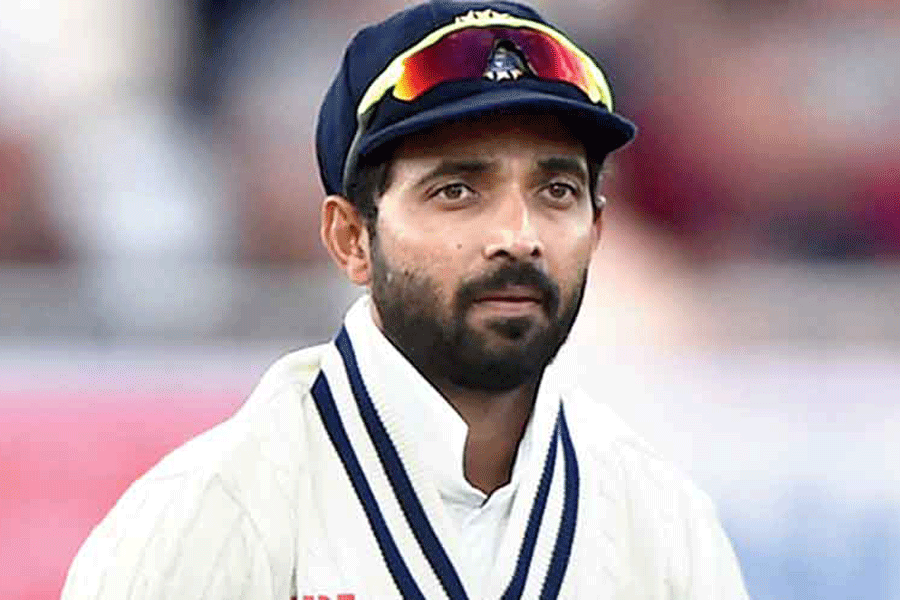Assessing the Challenges and Prospects of the India-Middle East-Europe Corridor (IMEC)
Navigating Geopolitical Turbulence and Economic Ambitions

India unveiled the India-Middle East-Europe Corridor (IMEC), an ambitious project, during the September 2023 G20 meeting in New Delhi.
India-Middle East and Europe Corridor (IMEC) is a planned ship and rail corridor that would link India to the Middle East and Europe. It is supported by the US, EU, and Middle Eastern officials including Saudi crown prince Mohammed bin Salman.
According to US President Joe Biden, the project would provide "endless opportunities." Ursula von der Leyen, President of the European Commission, described it as "the most direct connection between India, the Arabian Gulf, and Europe to date." "For hundreds of years to come," according to Indian Prime Minister Narendra Modi, IMEC would serve as the "basis of world trade."
However, both the Israel-Hamas conflict and Houthi rebel assaults on ships in the Red Sea have put a stop to IMEC work. The project's future is still a little unclear.
What effects has Israel's battle against Hamas had on the project?
A compelling feature of IMEC is its potential to foster economic integration and collaboration among Middle Eastern nations, such as the United Arab Emirates (UAE), Saudi Arabia, Jordan, and Israel.
But the realization of such a vision is contingent upon regional peace, which has been severely disrupted by the Israel-Hamas conflict. Furthermore, attempts to strengthen ties between Israel and several of its Arab neighbors have been hampered by the rage in Saudi Arabia and the United Arab Emirates over Israel's attack of Gaza.
In October, Biden went so far as to imply that Hamas's October 7 assault on Israel was motivated in part by their desire to thwart attempts for "regional integration for Israel," of which IMEC was one glaring recent example that he publicly supported.
Through rail and maritime networks, pipelines, and cables, IMEC seeks to link data, energy, and products from India to Europe via the Middle East. Anticipated to be a crucial component is a rail network that links the United Arab Emirates, Saudi Arabia, Jordan, and Israel.
$20 billion (€18.4 billion) of Saudi Arabian investment in IMEC has already been pledged, with a large portion going toward the rail network. However, considering the degree of collaboration Israel and its Arab neighbors will need to complete the project, it seems that IMEC's future currently depends on how the Israel-Hamas conflict plays out.
Saudi Arabia has said that, should the Gaza conflict come to an end, it is still interested in restoring diplomatic ties with Israel, but that it will only do so if an agreement results in the creation of a Palestinian state.
The Israel-Hamas conflict is just one aspect of the security concerns. The latest series of assaults by the Houthi rebels on ships in the Red Sea has brought to light how susceptible commerce is to security threats.
The IMEC's marine route from India would pass via the Strait of Hormuz, a very sensitive chokepoint that is susceptible to Iranian influence, rather than the Red Sea.
Exist any further difficulties for IMEC?
Regarding the feasibility of IMEC, there are several additional unanswered concerns. One has to do with Turkey. Ankara swiftly expressed its disapproval of IMEC from the beginning. Turkey is not a part of the IMEC project, and after the G20 announcement, President Recep Tayyip Erdogan said that "there can be no corridor without Turkey."
The Turkish government is promoting an alternate route called the Iraq Development Road while highlighting their nation's historical function as a link between commerce with the West and the East. It states that talks to construct a commercial route from Turkey to the Persian Gulf are being held with Iraq, Qatar, and the United Arab Emirates.
The foreign minister of Turkey, Hakan Fidan, described the opposition's focus as "geostrategic concerns." Commentators have stated that IMEC is political as much as it is economic, especially as it seems to be aimed at competing with China's Belt & Road Initiative.
Concerns exist about funding and construction as well. The project requires substantial collaboration and cross-border investment. Specifically, the project's environmental credentials have been heavily touted, although a feasibility analysis for building green hydrogen pipelines has not yet been conducted.
Is there any negative news for IMEC, though?
Regardless of the project's immediate feasibility, one thing is certain: India is making a lot of effort to build relationships in the Middle East.
As part of New Delhi's ongoing diplomatic plan to strengthen relations with the Gulf Arab nations, Indian Prime Minister Modi visited the United Arab Emirates and Qatar earlier this month.
Modi inked a bilateral investment contract to deepen economic relations when he was in the United Arab Emirates. India's second-largest export market today is the United Arab Emirates, with whom it inked a free trade agreement in 2023 with the intention of expanding non-oil commerce. Both parties committed to get the ambitious economic corridor online as soon as possible.
France recently named Gerard Mestrallet, the former CEO of Engie, a French energy business, as its official ambassador for the IMEC project, which is another encouraging indication that the proposal is still on the table. Mestrallet said in a Bloomberg interview that he was eager for some real progress to be achieved shortly.
"I'd like to convene the representatives of other IMEC member states in a gathering in the next two months," he said.
Except for the headline, this story has not been edited by Press Time staff and has been published from a syndicated feed.























































